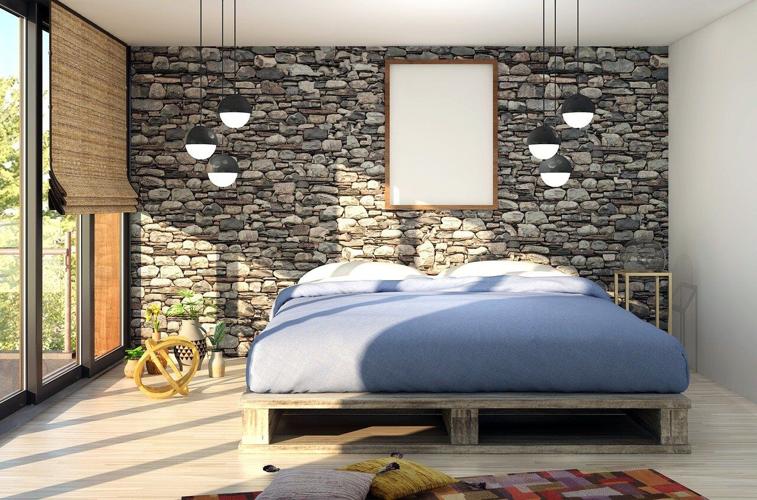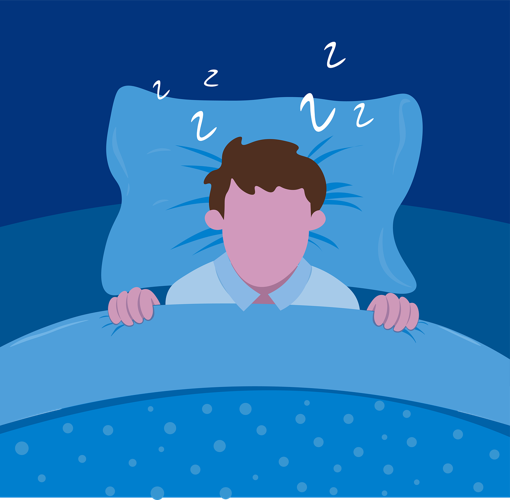Creating a restful sleep environment is crucial for achieving restorative and rejuvenating sleep – and because of this, your bedroom should be a sanctuary dedicated to promoting relaxation and peaceful rest. This article will explore the key elements of transforming your bedroom into a sleep sanctuary. From choosing the right mattress and bedding to setting the perfect lighting and atmosphere, we will guide you through essential steps to enhance your sleep quality and prioritise your well-being. It’ll be a zone of total relaxation, ready to drift off easily and wake up feeling refreshed.
The Foundation of Rest: Choosing the Right Mattress
A good night's sleep starts with choosing the right mattress – this is the base, the foundation of your bedtime. Take the time to find a mattress that aligns with your comfort preferences and offers proper support for your body – the right mattress can reduce back pain aches, pains, and sores. Consider firmness, materials, and responsiveness to select a mattress that promotes a restful sleep environment. You don’t want something too soft, as it won’t support you, but it’ll dig in and hurt your bones if it's too firm.

Pillows and Bedding are Comfortable and Hypoallergenic Choices
Investing in comfortable pillows and high-quality bedding is vital for creating a sleep sanctuary. Choose pillows that support your neck and align your spine properly, of course, and those that are comfortable for sleeping on. Opt for hypoallergenic pillow materials if you suffer from allergies or sensitivities – this will help your sleep without being disrupted by sneezing, sniffling, and shortness of breath. Look for bedding made from bamboo or organic cotton and labelled as hypoallergenic; these will also be super soft, feeling lovely on the skin. Bamboo is breathable, too: it will help you maintain a comfortable body temperature as you snuggle in and fall asleep.
Lighting and Atmosphere Sets the Mood for Sleep
Create a soothing atmosphere in your bedroom by implementing proper lighting. Dimmable lights or bedside lamps with warm, soft lighting can help signal your body that it's time to unwind and prepare for sleep. Avoid bright or blue light in the evening, as it can interfere with your body's natural sleep-wake cycle. Look into smart lighting – bulbs you can turn off using your voice and alarm clock lights that naturally brighten over an hour or so to help you wake up slowly.
Minimizing Noise Disturbances
Noise pollution can stop you from falling asleep easily – so reducing noise distractions in your bedroom can greatly enhance sleep quality. Consider using earplugs or investing in a white noise machine to mask disruptive sounds. Ensure that your bedroom is well-insulated and use sound-absorbing materials, such as thick curtains or carpeting, to minimise noise from outside. Try some relaxation techniques, like a sound bath or rainforest sounds, if you do like a bit of noise as you drift off…

Decluttering and Organization, A Mental Cleanse
A cluttered and disorganized bedroom can contribute to feelings of stress and restlessness – and these have a major impact on how well you’re able to sleep. A tidy room is a tidy mind; take the time to declutter and organise your space, creating a serene environment that promotes relaxation. Keep surfaces of unnecessary items and find proper storage solutions to maintain a tidy and peaceful environment. You’ll thank yourself in the long run when your bedroom is a little sanctuary of calm – you don’t need four books on your bedside table, that pile of clean clothing can be put away, and that rogue paperwork belongs elsewhere…
Technology-Free Zone, Disconnecting to Reconnect
Electronics and screens emit blue light that can disrupt sleep patterns – there is a whole load of science behind this. And scrolling through TikTok is incredibly overstimulating, so it’s no wonder it keeps you awake… Designate your bedroom as a technology-free zone by removing TVs, smartphones, and laptops from the sleeping area. Instead, opt for calming activities like reading a book, knitting, or practicing relaxation techniques to prepare your mind and body for sleep.
Incorporating Nature and Fresh Air
Natural elements go hand in hand with the word ‘sanctuary’; you can incorporate these into your bedroom design. Keep the windows open where possible – easier said than done sometimes, with the weather, but it’s worth doing so as it allows fresh air to circulate your space. Invest in some house plants (and learn how to look after them!) to improve the air quality in your bedroom and bring some greenery into the space.
Personal Touches Can Make Your Space Uniquely Yours
The space where you sleep should be a space that brings you joy and helps you relax; this isn’t necessarily a ‘one size fits all’ situation, so you should look to personalize your space—personal mementos from your travels, photos of loved ones, artwork that means something to you. Even DIY pieces can look great in your bedroom and make it feel like it’s a space just for you.
Turning Your Bedroom Into a Sanctuary
It all starts with a comfortable and supportive mattress, and there’s much more to it: fresh air, a clutter-free space, soft-on-the-skin bedding, and minimal screens. You deserve to prioritize your health and well-being, and sleep can help with that – your bedroom needs to be a space where it’s easy to relax, drift off, and achieve restorative rest no matter how busy and stressful your days are.











(1) comment
Creating a sleep sanctuary is key for rejuvenating rest. From the right mattress to calming lighting, this article guides you through crafting your perfect haven for quality sleep. Prioritize your well-being with these essential tips.
--Frikly
We welcome your comments
Log In
Post a comment as Guest
Keep it Clean. Please avoid obscene, vulgar, lewd, racist or sexually-oriented language.
PLEASE TURN OFF YOUR CAPS LOCK.
Don't Threaten. Threats of harming another person will not be tolerated.
Be Truthful. Don't knowingly lie about anyone or anything.
Be Nice. No racism, sexism or any sort of -ism that is degrading to another person.
Be Proactive. Use the 'Report' link on each comment to let us know of abusive posts.
Share with Us. We'd love to hear eyewitness accounts, the history behind an article.